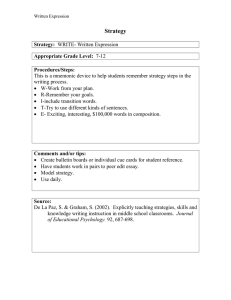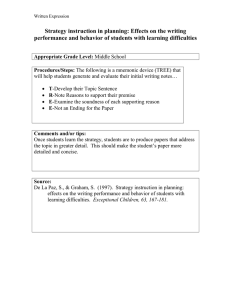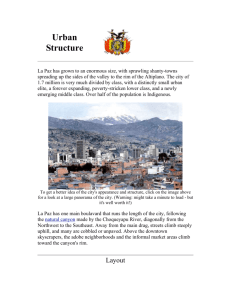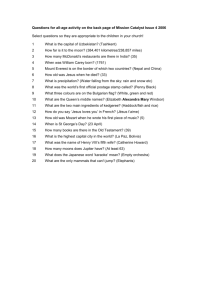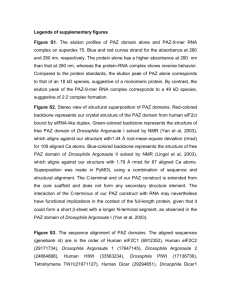Cold formed sheet piles PDF
advertisement
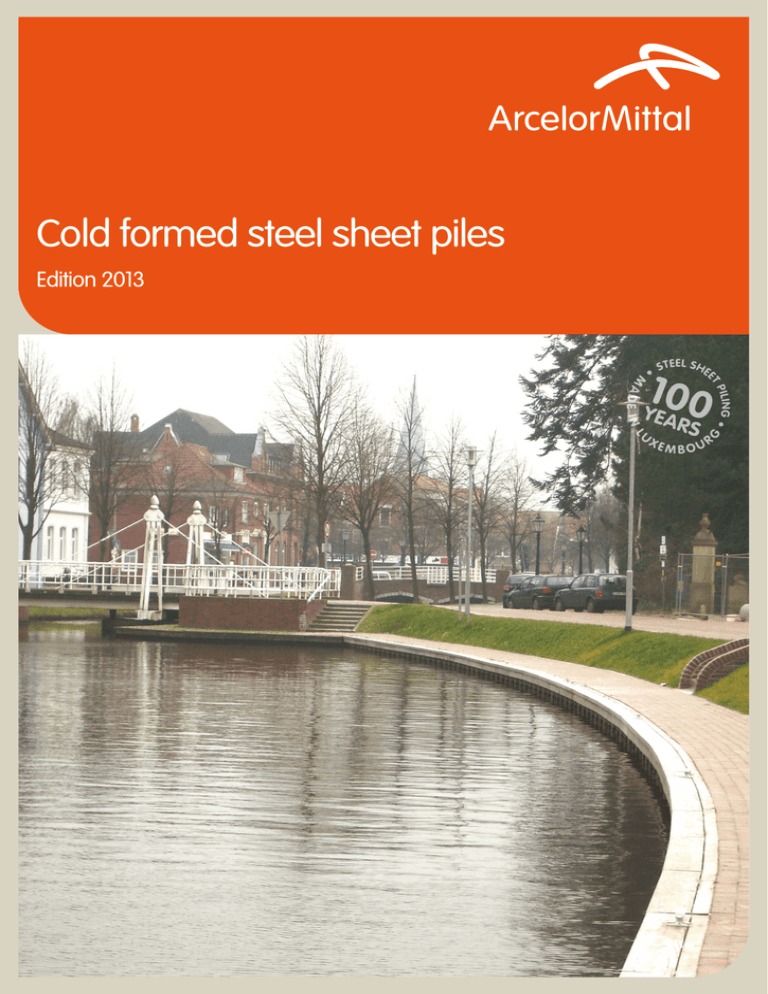
Cold formed steel sheet piles Edition 2013 Zwolle | The Netherlands Temporary cofferdam | Germany Duisburg | Germany Cover picture : Papenburg | Germany Cold formed steel sheet piles Edition 2013 Contents Introduction 4 Omega Sections 6 Z-Sections7 Trench sheets 8 Characteristics9 Delivery conditions 11 Durability13 Watertightness14 Installation14 Design values according to EN 1993-5 15 Introduction History The story of the French MESSEMPRE mill site goes back to the beginning of the 19th century when Forges BOUTMY was founded. The presence of many forests in this area, along with a water reserve convertible into electrical power, made it an excellent location. Right from the end of the 19th century, MESSEMPRE was already widely renowned for its speciality: the famous "blue" steel sheets of the Ardennes. However, the destiny of the site lay elsewhere after the company DE WENDEL acquired it in 1912 and took it on a different industrial course: the production of thin steel sheets. Thereafter, industrial development played its part finally leading to the cold-forming of steel sheets in 1954, and later to the cold-forming of steel sheet piles as of 1955. Several changes of ownership occurred over the years leading to the setting up of PALFROID in 1995. ProfilArbed was in charge of sales until 2001, year where Arbed, Aceralia and Usinor merged to create the No. 1 of Steel: Arcelor. Since the creation of ArcelorMittal in 2006, ArcelorMittal Commercial RPS manages the sales of the cold formed sheet piles. The company has been ISO 9001 certified since 2004 and its products comply with European Standard EN 10249, Parts 1 and 2. MESSEMPRE mill is currently the European leader in terms of cold forming steel sheet piles. Palfroid 4 / Introduction Applications of cold formed steel sheet piles Cold formed steel sheet piles have been used for decades in permanent and temporary structures, like waterfront structures, dykes, river embankments, cofferdams. Main applications are small retaining walls, temporary cofferdams requesting low watertightness, anchor walls of quay walls, reinforcement of dykes, river embankments, etc. The installation is quite simple and fast, and can be performed with a reduced driving team, standard driving methods and driving equipment, like impact hammers, vibratory hammers or hydraulic presses. Main characteristics and properties of cold formed steel sheet piles • Cover elastic section modulus range from 100 to 2 470 cm3/m • Constant thickness over the whole section, from 3 mm up to 10 mm (depending on the section) • Good ratio elastic section modulus / mass • High width, reducing handling and installation time • Reduced depth (of some sections) for structures facing space limitations • Angle deviations of the interlocks of 10° • Shear force transfer on neutral axis is guaranteed (important issue for U-type sheet piles) • Corner sections can be supplied with pre-bent or fabricated sheet piles • PAL 32 and PAU 27 are well suited for reuse • Can be coated or protected according to international standards (for instance EN 12944) • Supplied according to European standard EN 10249 • Steel grades available: S 235 JRC, S 275 JRC and S 355 J0C Flexible production capacities • Several sections in different thicknesses, lengths and steel grades are available on stock, allowing very short delivery times of one to two weeks. • A large stock of coils from 3 mm to 10 mm for the production of main sections. Delivery from 4 to 6 weeks time. • Any sheet pile section can be manufactured in thickness increments of 0.1 mm (up to the maximum thickness of the specific section). Delivery time including lead time for the supply of the coils: less than 8 weeks. Cold-forming of Omega section Cutting of interlocks with a saw. Introduction / 5 Omega Sections M Omega sections are quite suited for the execution of continuous walls that have a limited profile height. The ‘inversed’ interlocks allow the installation of relatively shallow structures. Their shape has been optimized in order to achieve an excellent ratio section modulus / mass, with section modulus up to 1 100 cm3/m. e h N b M Section Thickness (*) Width e Height Angle h Additional dimensions Mass Moment of inertia Elastic section modulus Static moment Sectional area Coating area (**) S cm3/m A cm2/m ALw m2/m h mm a ° M mm N mm kg/m of single pile kg/m2 of wall I cm4/m Wel cm3/m 89 41 260 466 19.4 29.4 500 112 65 37.5 0.80 660 90 41 260 466 25.8 39.2 666 147 85 49.9 0.80 5.0 660 91 41 260 466 32.2 48.8 831 181 105 62.2 0.80 PAL 3130 3.0 711 125 79 350 419 23.5 33.1 1 244 199 110 42.2 0.97 PAL 3140 4.0 711 126 79 350 419 31.3 44.0 1 655 261 145 56.1 0.97 PAL 3150 5.0 711 127 79 350 419 39.0 54.9 2 063 322 180 70.0 0.97 PAL 3260 6.0 700 149 61 299 471 46.2 66.0 3 096 413 245 84.1 0.92 PAL 3270 7.0 700 150 61 299 471 53.2 76.0 3 604 479 285 96.8 0.92 PAL 3280 8.0 700 151 61 299 471 61.6 88.0 4 109 545 325 112.1 0.92 PAL 3290 9.0 700 152 61 299 471 70.0 100.0 4 611 605 365 127.4 0.92 PAU 2240 4.0 921 252 48 252 725 39.0 42.3 5 101 404 240 53.9 1.22 PAU 2250 5.0 921 253 48 252 725 48.7 52.8 6 363 504 300 67.3 1.22 PAU 2260 6.0 921 254 48 252 725 58.3 63.3 7 620 600 360 80.7 1.22 PAU 2440 4.0 813 293 60 252 615 39.0 48.0 7 897 537 320 61.1 1.22 PAU 2450 5.0 813 294 60 252 615 48.7 59.9 9 858 669 395 76.3 1.22 PAU 2460 6.0 813 295 60 252 615 58.3 71.8 11 813 801 475 91.4 1.22 PAU 2760 6.0 804 295 60 252 615 60.4 75.1 12 059 803 495 95.7 1.16 PAU 2770 7.0 804 296 60 252 615 70.4 87.5 14 030 934 575 114.4 1.16 PAU 2780 8.0 804 297 60 252 615 80.3 99.8 15 995 1 063 655 127.1 1.16 e N mm b mm PAL 3030 3.0 660 PAL 3040 4.0 PAL 3050 b b * Other thicknesses on request ** One side, excluding inside of interlocks Temporary structure | Airport Leipzig-Halle | Germany 6 / Omega Sections N b Z-Sections M PAZ sections are the most cost-effective type of cold formed steel sheet piles. Their high width reduces significantly the installation time at the job site. They are particularly well adapted for reinforcing dams and river or canal banks. Elastic section modulus up to 2 500 cm3/m. e h N b Section b Thickness (*) Width Height Angle Moment of inertia Elastic section modulus Static moment Sectional area Coating area (**) e mm b mm h mm a ° M mm N mm kg/m of single pile kg/m2 of wall I cm4/m Wel cm3/m S cm3/m A cm2/m ALw m2/m PAZ 4350 5.0 770 213 34 465 1 078 38.2 49.6 4 770 448 255 63.2 0.91 PAZ 4360 6.0 770 214 34 465 1 078 45.8 59.4 5 720 534 310 75.1 0.91 PAZ 4370 7.0 770 215 34 465 1 078 53.3 69.2 6 660 619 360 88.2 0.91 PAZ 4450 5.0 725 269 45 444 988 37.7 52.0 8 240 612 350 66.2 0.91 PAZ 4460 6.0 725 270 45 444 988 45.1 62.2 9 890 730 415 79.3 0.91 PAL 4470 7.0 725 271 45 444 988 52.4 72.3 11 535 846 485 92.1 0.91 PAZ 4550 5.0 676 312 55 444 890 37.7 55.8 12 065 772 435 71.0 0.91 PAZ 4560 6.0 676 313 55 444 890 45.1 66.7 14 444 922 520 85.0 0.91 PAZ 4570 7.0 676 314 55 444 890 52.4 77.5 16 815 1 069 610 98.8 0.91 PAZ 4650 5.0 621 347 65 438 778 37.7 60.7 16 318 940 530 77.3 0.91 PAZ 4660 6.0 621 348 65 438 778 45.1 72.6 19 544 1 122 635 92.5 0.91 PAZ 4670 7.0 621 349 65 438 778 52.4 84.4 22 756 1 302 740 107.5 0.91 PAZ 5360 6.0 857 300 37 453 1 245 54.3 63.3 11 502 766 450 80.7 1.04 PAZ 5370 7.0 857 301 37 453 1 245 63.2 73.7 13 376 888 520 93.9 1.04 PAZ 5380 8.0 857 302 37 453 1 245 72.1 84.0 15 249 1 009 595 107.1 1.04 PAZ 5390 9.0 857 303 37 453 1 245 81.0 94.4 17 123 1 131 665 120.3 1.04 PAZ 5460 6.0 807 351 45 442 1 149 53.9 66.8 16 989 968 560 85.1 1.04 PAZ 5470 7.0 807 352 45 442 1 149 62.6 77.6 19 774 1 123 655 98.9 1.04 PAZ 5480 8.0 807 353 45 442 1 149 71.4 88.4 22 546 1 277 745 112.7 1.04 PAZ 5490 9.0 807 354 45 442 1 149 80.2 99.3 25 318 1 431 835 126.5 1.04 10.0 808 355 45 442 1 149 89.2 110.3 27 850 1 570 920 140.5 1.04 PAZ 5560 6.0 743 407 55 438 1 020 53.9 72.5 25 074 1 233 710 92.4 1.04 PAZ 5570 7.0 743 408 55 438 1 020 62.6 84.3 29 179 1 432 825 107.4 1.04 PAZ 5580 8.0 744 409 55 438 1 020 71.4 96.0 33 263 1 628 940 122.3 1.04 PAZ 5590 9.0 744 410 55 438 1 020 80.2 107.8 37 387 1 825 1 060 137.3 1.04 10.0 745 410 55 438 1 020 89.2 119.8 41 060 2 000 1 165 152.6 1.04 PAZ 5660 6.0 671 451 65 434 875 53.9 80.3 34 340 1 525 875 102.3 1.04 PAZ 5670 7.0 671 452 65 434 874 62.6 93.3 39 954 1 770 1 020 118.9 1.04 PAZ 5680 8.0 672 453 65 434 874 71.4 106.3 45 537 2 013 1 160 135.4 1.04 PAZ 5690 9.0 672 454 65 434 874 80.2 119.3 51 180 2 259 1 300 151.9 1.04 10.0 673 455 65 434 874 89.2 132.5 56 200 2 470 1 435 168.8 1.04 PAZ 54100 PAZ 55100 PAZ 56100 Additional dimensions Mass * Other thicknesses on request ** One side, excluding inside of interlocks Z-Sections / 7 Trench sheets 252 h 48 e b Section Trench sheets are used to form a continuous wall through the overlapping. The main types of applications are sewerage and drainage works, and particularly sheeting for small excavations and temporary works. They are indispensable structural elements that provide protection for the job-site personnel working within enclosed areas. Thickness (*) Width Height Mass Moment of inertia Elastic section modulus Static moment Sectional area Coating area (**) e mm b mm h mm kg/m of single pile kg/m2 of wall I cm4/m Wel cm3/m S cm3/m A cm2/m ALw m2/m RC 8600 6.0 742 92 40.9 55.1 896 194 116 70.2 0.87 RC 8700 7.0 742 93 47.6 64.2 1 045 224 135 81.8 0.87 RC 8800 8.0 742 94 54.2 73.0 1 194 254 154 93.0 0.87 * Other thicknesses on request ** One side Temporary structure | Cheppy | France 8 / Trench sheets Characteristics There are two interlock shapes: a "small" lock and a "large" lock. The shape of the geometry of cold formed sheet piles depends among other on the thickness of the sheet pile. The table below shows the threading compatibility of the different sections. Small lock Large lock Delivery form Omega Sections Form II standard Form I on request Z-Sections Position A Position B Form II standard Form I on request Threading compatibility Series PAL 31 PAZ 22 24 27 PAZ PAU 30 31 32 22 24 27 43 44 45 46 53 54 55 56 30 32 PAU PAL 43 44 45 46 53 54 55 56 Characteristics / 9 Welds PAZ sheet piles are usually delivered threaded in pairs with the common interlock partially welded at regular intervals by 150 mm long welds. The number of welds depends on the length of the sheet piles. Welds of Z- Sections Length of section L m Number of welds L ≤ 3.0 2 3.0 < L ≤ 8.0 3 8.0 < L ≤ 12.0 4 12.0 < L 5 Special piles PAZ, PAL and PAU sections can be adapted to any geometrical arrangement, by welding or bending of the piles. Do not hesitate to contact us with any specific request. 90° and 0° bent assembly 45° and 30° bent assembly PAL or PAU welded assembly PAZ welded T assembly 10 / Characteristics 30° et 30° bent assembly Delivery conditions Steel grades Maximum thickness per type of sheet pile PAZ, PAU and PAL sections, as well as trench sheets are available in the steel grades according to EN 10249-1: Steel grade EN 10249-1 (*) Min. yield strength ReH Min. tensile strength Rm Min. elongation MPa MPa % Lo=5.65√So S 235 JRC 235 360 - 510 26 S 275 JRC 275 410 - 560 23 S 355 J0C 355 470 - 630 22 Steel grade Series PAL PAU (*) Mechanical properties according to EN 10025-2:2004. Other steel grades available on request. PAZ S 235 JRC S 275 JRC S 355 J0C 30 5.0 5.0 5.0 31 5.0 5.0 5.0 32 9.0 9.0 8.0 22 6.0 6.0 6.0 24 6.0 6.0 6.0 27 8.0 8.0 7.0 43 7.0 7.0 7.0 44 7.0 7.0 7.0 45 7.0 7.0 7.0 46 7.0 7.0 7.0 53 9.0 9.0 8.0 54 10.0 9.0 8.0 55 10.0 9.0 8.0 56 10.0 9.0 8.0 Handling holes All sheet pile sections can be supplied with a handling hole. Standard dimensions are as follows: Diameter D mm Distance Y mm PAL 30-31 40 150 PAL 32 45 150 PAU 45 200 PAZ 50 200 Y D Y D Different dimensions on request. Delivery conditions / 11 Tolerances of sheet piles according to EN 10249 Characteristics Figures Nominal size h ≤ 200 mm Height Height h Width b Wall thickness Thickness e The tolerances on the wall thickness of the profiles shall comply with the requirements of table 3 of EN 10051, for a nominal width of strip and sheet over 1800 mm. ± 4 mm 200 < h ≤ 300 ± 6 mm 300 < h ≤ 400 ± 8 mm 400 < h Width Tolerances ± 10 mm Single sheet piles ± 2% b Double sheet piles ± 3% b e = 3.00 mm ± 0.26 mm 3.00 < e ≤ 4.00 ± 0.27 mm 4.00 < e ≤ 5.00 ± 0.29 mm 5.00 < e ≤ 6.00 ± 0.31 mm 6.00 < e ≤ 8.00 ± 0.35 mm 8.00 < e ≤ 10.00 ± 0.40 mm Bending 0.25% L Bow-height S Plan view Curving 0.25% L Bow-height C Elevation ±2% L or 100 mm max. Twisting Dimension V Section A-A Length Length L Normal tolerance (*) Squareness of ends Out-of-squareness t of end cuts Mass Difference between the total actual mass and the total calculated mass delivered (*) * Reduced tolerances are available on request 12 / Delivery conditions ± 50 mm ± 2% b ± 7% Durability | Watertightness | Installation Durability Unprotected steel in the atmosphere, in water or in soil is subject to corrosion that in extremely unfavourable cases can lead to severe damages. Local weakening and perforation are normally considered to be maintenance problems. They can be fixed locally when they appear. However, depending on lifetime requirements and accessibility of the structure, one or a combination of the following methods can improve the durability of the sheet piles and contribute to the achievement of the service life: • corrosion protection by surface coating, • choice of a stronger section or of a higher steel grade, • avoiding important bending moments in the zone prone to high corrosion rates, • corrosion protection by Hot-Dip Galvanizing. The corrosion rate of steel depends on the exposure area. For more information, please refer to Chapter 4 of EN 1993-5 (2007). Surface coating The classical corrosion protection for steel sheet piling is surface coating. EN ISO 12944 deals with protection by paint systems and its various parts cover all the features that are important in achieving adequate corrosion protection. It is essential that the steel surface is properly prepared. In order to meet the requirements of the market, all our products can be delivered with a surface suited to their intended use. We can offer a full range of surface treatments, from the most simple to the most sophisticated: from a simple application of a primer after shot blasting to a more complex protection with multiple coat layers. Our know-how also enables us to meet special requests: special coatings or treatments on a portion of the sheet pile length. For aesthetic reasons, the final coating layer is sometimes applied only on the visible parts of the sheet piles. Hot-Dip Galvanizing The process consists in dipping the steel to be coated into liquid zinc after adequate surface preparation, thereby creating a steel-zinc alloy on the steel surface and providing a pure zinc layer on the whole surface. Surface preparation is made by submitting the steel to a pickling bath (acid) and a flux treatment (chlorides). The zinc bath has a temperature of 450°C and the minimum thickness of the finished zinc layer is 85 µm, in compliance with EN ISO 1461. If a paint system is applied on the galvanization, it is referred to as a “Duplex” system. The paint system that is foreseen on the zinc layer must be compatible with the hot dip galvanization. Note : Galvanization of the finished product has an influence on the chemical composition of the steel. Therefore this surface treatment must be notified to the mill already at the enquiry phase. Durability | Watertightness | Installation / 13 Watertightness Steel sheet piles are impervious. The only possibility of water seeping through a sheet pile wall is by flowing through the interlock. The interlock naturally provides seepage resistance due to its shape. Sealing systems are therefore not necessarily required for applications such as temporary retaining walls where moderate rates of seepage are acceptable. If medium to high seepage resistance is required, e.g. cut-off walls for contaminated sites, retaining structures for bridge abutments or tunnels, double sheet piles with sealed or welded joints are recommended. Watertightness of cold formed sheet pile walls can be improved by using a bituminous filler: "Beltan", which can withstand a maximal water pressure of 100 kPa. The more expensive alternative is a continuous seal-weld done on site after installation of the sheet piles (on the portion accessible after installation). Installation The installation of cold formed steel sheet piles is simple and quick. It can be done with a reduced driving crew. State-ofthe-art driving techniques require an adapted driving equipment. The choice of the driving procedure and equipment will depend essentially on the sheet pile section characteristics, steel grade, length, and the soil properties. Driving equipment can be subdivided in three main categories: • impact hammers are the oldest equipment used to install steel sheet piles into the ground. It consists in driving a stiff element into the soil with a massive ram, which mass and drop height is chosen based on the section and soil properties. There are three main types of impact hammers: single or double impact hydraulic hammers, diesel hammers and more old-fashioned ‘rapid-blow’ impact hammers. • vibratory hammers induce a vertical vibration of the sheet pile element, reducing significantly the friction and adhesion between the soil and the surface of the driven element. It is a most cost-effective installation technique in granular soils, like sands and gravels, especially when they are saturated, as well as in soft to firm cohesive soils. • hydraulic presses were developed in order to allow installation of sheet piles without vibrations and with a considerable reduction of noise. They are especially recommended in sensitive environments, like urban areas, although it is slower and although the installation costs are generally higher compared to the previous two methods. This technique is quite effective in loose to medium dense granular soils and soft to firm cohesive soils. The most effective driving method is the ‘panel’ driving, but it is also more expensive and time-consuming than the ‘pitch & drive’ method, which consists in driving each element straight to the final elevation Installation may be facilitated by driving assistance techniques, the most well known of which are pre-drilling and jetting. The latter operation involves injecting water under pressure at the toe of the sheet pile during driving, and is quite effective in dense sand layers. Please contact our technical department for further information on these topics. 14 / Durability | Watertightness | Installation Wel cm3/m Class1) Mk2) kNm/m Section Wel cm3/m Wpl cm3/m Class1) S 355 J0C S 275 JRC S 235 JRC S 355 J0C S 275 JRC S 235 JRC S 355 J0C S 275 JRC S 235 JRC S 355 J0C Wpl cm3/m Mk2) kNm/m PAL 3030 112 - 4 4 4 21 24 29 PAZ 4350 448 - 4 4 4 77 83 94 PAL 3040 147 - 4 4 4 31 35 43 PAZ 4360 534 - 4 4 4 95 104 118 PAL 3050 181 - 4 4 4 42 48 59 PAZ 4370 619 - 3 4 4 114 124 142 PAL 3130 199 - 4 4 4 29 33 40 PAZ 4450 612 - 4 4 4 126 139 156 PAL 3140 261 - 4 4 4 45 51 63 PAZ 4460 730 - 4 4 4 158 174 197 PAL 3150 322 - 4 4 4 63 70 86 PAL 4470 846 - 3 4 4 189 209 239 PAL 3260 413 - 4 4 4 95 108 133 PAZ 4550 772 - 4 4 4 172 192 220 PAL 3270 479 - 3 3 4 118 135 167 PAZ 4560 922 - 4 4 4 213 239 279 PAL 3280 545 624 2 3 3 139 159 200 PAZ 4570 1 069 - 3 4 4 254 287 338 PAL 3290 605 696 2 2 3 160 184 233 PAZ 4650 940 - 4 4 4 220 251 298 PAU 2240 404 - 4 4 4 84 95 111 PAZ 4660 1 122 - 4 4 4 269 308 374 PAU 2250 504 - 4 4 4 116 133 161 PAZ 4670 1 302 - 3 4 4 319 365 451 PAU 2260 600 - 3 3 4 150 170 212 PAZ 5360 766 - 4 4 4 169 187 213 PAU 2440 537 - 4 4 4 111 124 148 PAZ 5370 888 - 3 4 4 201 223 256 PAU 2450 669 - 4 4 4 154 174 212 PAZ 5380 1 009 - 3 3 4 232 259 299 PAU 2460 801 - 3 3 4 197 224 279 PAZ 5390 1 131 - 3 3 3 265 296 344 PAU 2760 803 - 3 3 4 198 226 276 PAZ 5460 968 - 4 4 4 231 261 307 PAU 2770 934 1 136 2 3 3 243 280 346 PAZ 5470 1 123 - 3 4 4 274 310 369 PAU 2780 1 063 1 293 2 2 3 289 333 416 PAZ 5480 1 277 - 3 3 4 317 360 431 PAZ 5490 1 431 - 3 3 3 361 408 493 PAZ 54100 1 570 1 840 2 x x - x x PAZ 5560 1 233 - 4 4 4 304 349 426 PAZ 5570 1 432 - 3 4 4 360 413 509 PAZ 5580 1 628 - 3 3 4 415 477 590 PAZ 5590 1 825 - 3 3 3 471 541 673 PAZ 55100 2 000 2 330 2 x x - x x PAZ 5660 1 525 - 4 4 4 378 435 542 PAZ 5670 1 770 - 3 4 4 446 515 645 PAZ 5680 2 013 - 3 3 4 514 594 746 PAZ 5690 2 259 - 3 3 3 583 671 848 PAZ 56100 2 470 2 865 2 x x - x x Wel : Elastic section modulus Wpl : Plastic section modulus 1) Classification according DIN EN 1993-5. Class 1 is obtained by verification of the rotation capacity for a class-2 cross-section. 2) The characteristic bending moment resistance Mk in pure bending was determined with a 4-point bending test and through numerical simulations using a finite element software (“Gutachten Nr. 10-35” of the IFSW institute in Germany). The design value of the bending moment resistance can be calculated with the formula Md = Mk / gM0 where gM0 is specified in the National Application document (NA) of EN 1993-5 or gM0 = 1.0 according to EN 1993-5:2007 in the absence of a NA document. x)Section not available in this steel grade Z - Sections Omega sections Section S 275 JRC S 235 JRC Design values according to EN 1993-5 Disclaimer The data and commentary contained within this steel sheet piling document is for general information purposes only. It is provided without warranty of any kind. ArcelorMittal Commercial RPS S.à r.l. shall not be held responsible for any errors, omissions or misuse of any of the enclosed information and hereby disclaims any and all liability resulting from the ability or inability to use the information contained within. Anyone making use of this material does so at his/her own risk. In no event will ArcelorMittal Commercial RPS S.à r.l. be held liable for any damages including lost profits, lost savings or other incidental or consequential damages arising from use of or inability to use the information contained within. Our sheet pile range is liable to change without notice. Edition November 2012 Design values according to EN 1993-5 / 15 ArcelorMittal Commercial RPS S.àr.l. Sheet Piling 66, rue de Luxembourg L-4221 Esch-sur-Alzette (Luxembourg) 1-6-12-1-GB T (+352) 5313 3105 F (+352) 5313 3290 Esheetpiling@arcelormittal.com www.arcelormittal.com/sheetpiling
